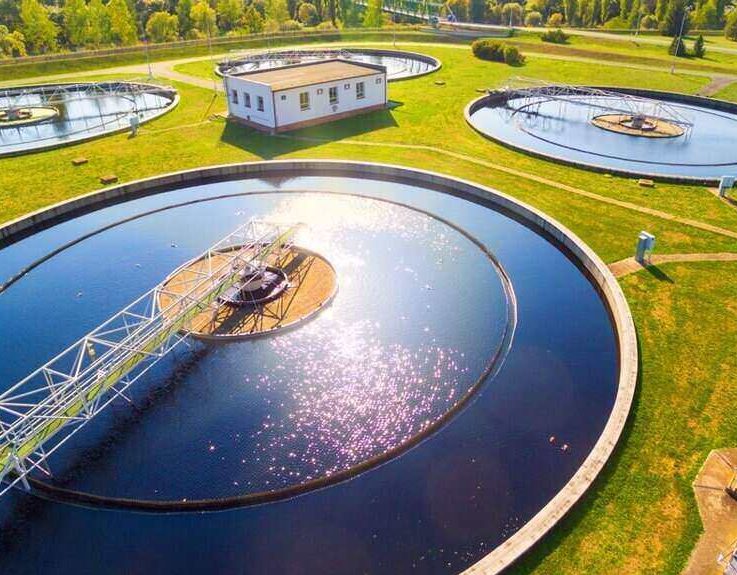The Crucial Role of a Sustainable Water Management Plan in Urban Planning
A sustainable water management plan is vital for effective urban planning, especially in the face of challenges such as rapid urbanization, climate change, and water scarcity. As cities continue to grow, the demand for water resources increases, making it essential to adopt integrated strategies that ensure the sustainable use of these resources. Here, we explore the key aspects of how a sustainable water management plan shapes resilient cities.
1. Integrated Water Resource Management (IWRM)
One of the foundational elements of a sustainable water management plan is Integrated Water Resource Management (IWRM). This approach promotes the coordinated management of water, land, and related resources, ensuring that various aspects of water use—such as supply, wastewater treatment, and storm water management—are considered holistically. By adopting IWRM, urban planners can enhance efficiency and sustainability, ensuring that water resources are utilized effectively while meeting the diverse needs of urban populations.
2. Reducing Flood Risks
Flooding poses a significant risk to urban areas, particularly as climate change leads to more intense rainfall events. A sustainable water management plan can incorporate green infrastructure solutions—such as permeable pavements, green roofs, and rain gardens—that mitigate urban flooding. These strategies enhance natural water absorption and reduce runoff, thereby protecting urban areas from storm surges and heavy rains. By integrating such measures, cities can significantly lower their vulnerability to flooding while promoting environmental benefits.
3. Enhancing Water Quality For Water Management Plan
The quality of water in urban environments is critical for public health and ecological balance. A robust water management plan can significantly improve water quality by incorporating practices that minimize pollution. Effective wastewater treatment systems, combined with strategies to reduce runoff, help protect local waterways and ecosystems. By ensuring that contaminants are properly managed, urban planners can create healthier environments for both residents and wildlife.
4. Promoting Water Conservation
Encouraging water conservation is a vital component of any sustainable water management plan. Urban planners can implement policies that promote water-saving technologies and practices among residents and businesses. This includes advocating for water-efficient appliances, xeriscaping, and rainwater harvesting systems. By raising awareness about the importance of water conservation, cities can foster a culture of sustainability that encourages all stakeholders to play their part in reducing water consumption.
5. Supporting Biodiversity
Sustainable water management also plays a key role in supporting urban biodiversity. By creating green spaces, wetlands, and other natural habitats, cities can enhance their ecological networks. These areas not only provide vital habitats for wildlife but also contribute to water filtration and climate regulation. Integrating biodiversity into the water management plan can create more resilient urban environments, making cities not only livable but also vibrant ecosystems.
6. Community Engagement
Involving communities in water management decisions is essential for fostering a sense of ownership and responsibility. A sustainable water management plan should include public education initiatives that promote awareness of water issues and encourage sustainable practices at the local level. By engaging residents and stakeholders, urban planners can cultivate a community-centric approach to water management, ensuring that the needs and values of the population are reflected in decision-making processes.
7. Climate Resilience
As climate change poses increasing threats to urban areas, incorporating climate adaptation strategies into a water management plan becomes crucial. Urban planners need to assess future water availability, manage demand, and enhance infrastructure resilience to prepare for the impacts of climate change. By proactively addressing these challenges, cities can become more adaptable and better equipped to handle the uncertainties of future water availability.
Conclusion
In summary, a sustainable water management plan is a cornerstone of effective urban planning. It fosters resilience, enhances quality of life, and ensures the sustainable use of water resources in rapidly growing cities. As urban populations continue to rise, the integration of these principles will be essential for building sustainable and livable environments. By prioritizing a comprehensive water management plan, cities can navigate the complexities of urbanization and climate change while safeguarding their most precious resource: water.
Do Follow https://www.sweco.co.uk/services/water-energy-industry/water-consultancy/water-management/resources/
You can also visit our blog https://utility7.com/water-conservation-tips-for-uk-households-small-changes-big-impact/

